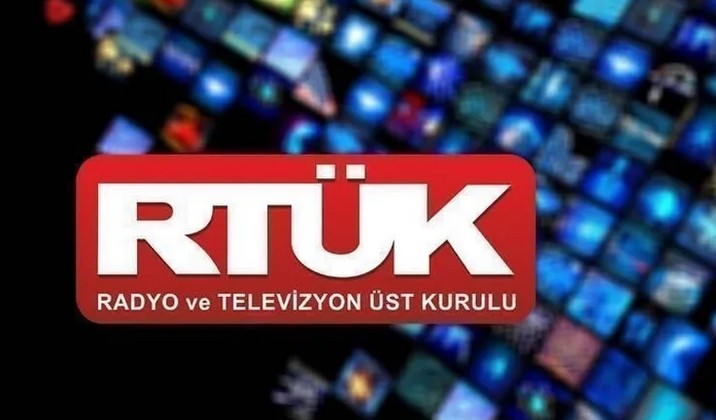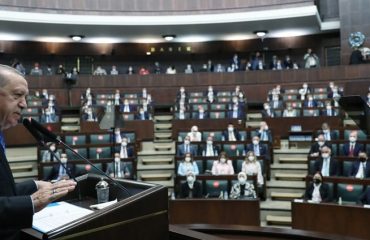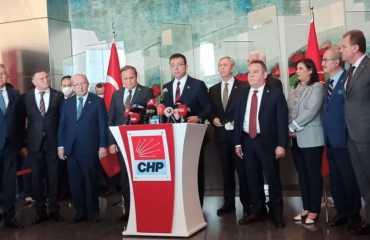

Broadcasting authority RTÜK delivered its biggest ever blow to Turkish TV stations, which broadcast live protests after the arrest of the İstanbul Mayor İmamoğlu, who is considered the strongest rival against President Erdogan.
At its March 27 meeting, the Turkish Radio and Television Supreme Board (RTÜK) imposed the heaviest fines ever on TV channels that do not toe the government line. With the fines, Sözcü TV received a 10-day blackout penalty, and the cancellation of its broadcasting license is now imminent. According to RTÜK member İlhan Taşçı, who said he opposed the decision, Halk TV and Tele1 also received program bans and fines, while Now TV was fined for the commentaries during its weekly “Orta Sayfa” program.
The common reason for the blackout fines is reportedly the live broadcasting of CHP leader Özgür Özel’s rallies, which started with the detention and continued with the arrest of Ekrem İmamoğlu, İtanbul Metropolitan Mayor; now removed from office.
In a written statement, RTÜK said they showed no mercy to “insults and calls for uprising”.
“Public incitement to hatred and enmity…”bianet
Accordingly, the penalties imposed on TV channels and their reasons are as follows:
– Sözcü TV was given a 10-day broadcast suspension for “inciting hatred and hostility among the public” through live broadcasts from İstanbul, Ankara, and İzmir rallies. If the channel receives another penalty under the same article, 8/1/b, its license will be revoked. Following the notification, SZC TV will be blacked out 24/7 for 10 days. Only the text of RTÜK’s decision will be projected on a black background. SZC TV was fined 3 percent for CHP Parliament Spokesperson Ali Mahir Başarır’s remarks against MHP Chairman Devlet Bahçeli.
– Halk TV was sentenced to 5 program suspensions for broadcasting CHP Chairman Özel’s criticism of İstanbul Chief Public Prosecutor Akın Gürlek and President Recep Tayyip Erdoğan and his call for a boycott at the Saraçhane rally during the “Gündem Özel” program. RTÜK also imposed a 5 percent administrative fine on Halk TV for broadcasting live from İstanbul, Ankara, and İzmir rallies and for “inciting the public to hatred and hostility” in the comments. In addition, an administrative fine of 3 percent was imposed for broadcasting Başarır’s words, “We will resist these coup plotters with scales in their hands all together”. With these fines, Halk TV is one step closer to being shut down.
– Tele 1 was fined 5 percent and suspended 5 times for broadcasting Özel’s criticism of Erdoğan and Gürlek at the Saraçhane rally in the Haber 13 program, and for “inciting people to hatred and hostility” by broadcasting live from İstanbul, Ankara, and İzmir rallies. Tele 1 was fined 3 percent for criticizing RTÜK President Ebubekir Şahin in the “Sabah Pusulası” program.
What does RTÜK aim for?
Now TV was also given a 2 percent administrative fine for comments made on the “Orta Sayfa” program that the procedures related to the İmamoğlu investigation were “unlawful and carried out with instructions”.
In addition, the YouTube channels of Fatih Altaylı and İlker Canikligil (who was arrested yesterday on charges of “public incitement to hatred and hostility”) were banned from access unless they apply for a license within 72 hours. This development signals that danger is imminent for YouTube channels, where independent broadcasting is still possible.
According to the Constitution, RTÜK is an independent body. But its members are elected by the Turkish Grand National Assembly, thus, the parliamentary vote distribution is reflected in RTÜK’s management. Mostly, members elected by AKP and MHP vote for such bans. Decisions can be appealed to the administrative court within 15 days of notification.
RTÜK bans mean that the space for freedom of the press and expression in Türkiye is further narrowed. The Turkish Journalists’ Association (TGC) condemned the fines as “unconstitutional”, saying that “the intention behind the fines is to restrict the public’s right to information” and that RTÜK is “trying to discourage journalists and media organizations from discussing and reporting on the government’s activities that are not in the public interest.”

